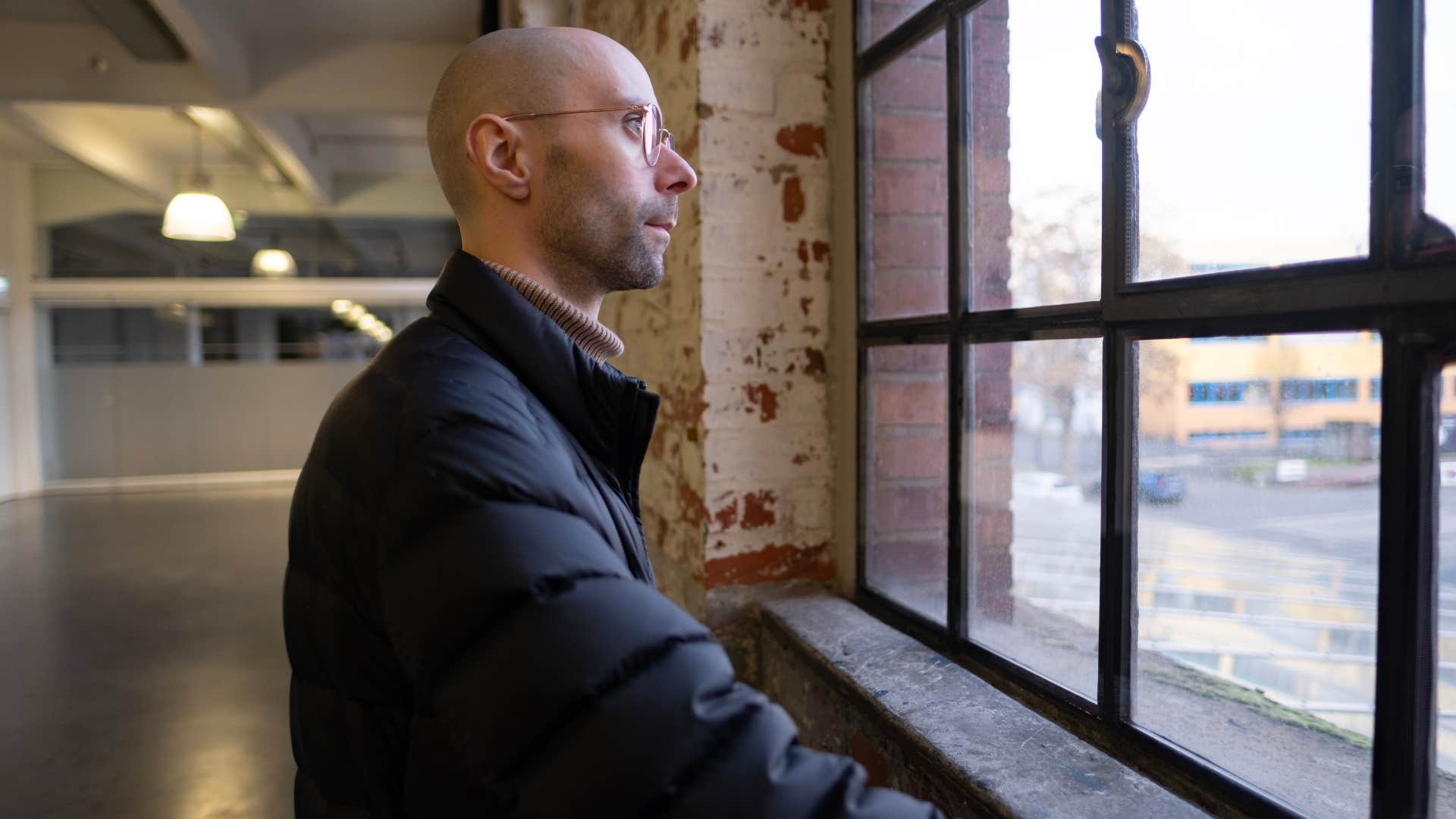If You Always Feel Like The Odd One Out, You Might Have These 11 Rare Hidden Strengths
Being an outsider comes with its own perks.
 GalacticDreamer / Shutterstock
GalacticDreamer / Shutterstock If you tend to feel like the odd one out, chances are you have developed some rare and hidden strengths due to your feelings of being an outsider. While it may initially be a struggle to adjust to not being the same as everyone else, your uniqueness will eventually pay off once you begin accepting yourself.
Accepting that you are unique in your own ways and you do not have an obligation to fit into the standards that society creates allows you to build strengths that make you a more independent and empathetic person. Your best qualities can shine through when you start giving yourself grace and being as you are.
If you always feel like the odd one out, you might have these 11 rare hidden strengths
1. Unapologetic authenticity
 Rachata Teyparsit / Shutterstock
Rachata Teyparsit / Shutterstock
When you feel like the odd one out, you may find yourself needing to rely on your strong sense of self rather than finding validation externally. Instead of conforming to societal pressures and seeking the acceptance of others, you choose to develop a genuine connection with yourself.
A 2018 study found that feeling like a unique and special person that does not conform to what everyone else does is associated with living a more authentic life that leads to happiness. The amount of happiness that will result when you start living in a way that sticks true to who you are will be enough to make you feel unapologetic about your authenticity.
2. Self-reliance
 fizkes / Shutterstock
fizkes / Shutterstock
If you feel like the odd one out, as a way of coping with this feeling, you may have developed strong self-reliance. Knowing that you cannot find true support from others around you will make you realize that in order for your needs to be fulfilled, you have to rely on yourself. Eventually, you learn to embrace the things about yourself that make you different from others.
“The sense of accomplishment that comes from knowing we can navigate life’s challenges independently is empowering. Hyper-independence can shape us into individuals who are prepared to face adversity head-on,” mentions Amber Wardell, Ph.D., a doctor of psychology and author.
3. Observational skills
 Kittyfly / Shutterstock
Kittyfly / Shutterstock
Feeling like the odd one out may encourage the development of your observational skills. In order to even begin to realize you are different from those around you, you’d have to have a heightened awareness of societal norms.
This probably acts as a coping and safety mechanism for you as well. By being able to have a deeper understanding of what to expect when entering social situations, you are able to somewhat self-preserve and plan for potential threats.
4. Profound empathy for other outsiders
 PeopleImages / Shutterstock
PeopleImages / Shutterstock
Your feelings of always being the odd one out will likely lead you to being a very empathetic person, especially to others that you perceive as being outsiders. You understand how lonely it can feel at first when you realize that you are unique. Therefore, you want others who feel this way to know that their feelings are validated and that they are not alone in how they feel.
People tend to be more empathetic toward individuals whom they know have experienced similar life events as they have. It comes naturally to you to care for those who you know are struggling through something that you have struggled through, and you may even feel an obligation to make sure they get to the other side of their troubles because of this.
5. Self-awareness
 Rido / Shutterstock
Rido / Shutterstock
When you feel like you are the odd one out, you may develop greater self-awareness. As an outsider, you begin to feel a need for self-understanding and reliance, which requires you to have a good sense of your own values, who you are, and how that compares to those around you. Instead of hiding from who you really are, you are more interested in understanding yourself, and you are curious about your own mind.
Nick Wignall, a board-certified clinical psychologist, mentions that, “Self-aware people have a habit of thinking about their own patterns of thought. But this habit isn’t usually something overly-formal and analytical—sitting down once a week to review their thinking processes in a decision journal. I mean, keeping a decision journal is fine, but the type of thinking about thinking that leads to greater self-awareness is more observational than analytical, more curiosity-driven than results-focused.”
6. Higher tolerance for solitude
 fizkes / Shutterstock
fizkes / Shutterstock
If you feel like the odd one out or an outsider, you might have a higher tolerance for solitude than most people. This is something you’ve likely adapted, considering you experience social exclusion and most of the time have to spend time alone.
While solitude can at times lead to loneliness, once you have learned to enjoy and appreciate this time, it can lead to very positive things. In the midst of solitude, some of your brightest and most creative ideas can form.
7. Freedom from peer pressure
 simona pilolla 2 / Shutterstock
simona pilolla 2 / Shutterstock
When you feel like an outsider, you may find yourself being distant from others. The differences you possess make it hard for you to feel like you fit the social expectations that would likely come from hanging around people who are not like you.
One major positive of being the odd one out is that you have freedom from peer pressure. Once you accept the things that make you unique, you are able to embrace your individuality and no longer feel a need to give in to any kind of peer pressure. Instead, you explore your own passions and focus on the friendships you have with peers who are more like you.
8. Persistence
 TetianaKtv / Shutterstock
TetianaKtv / Shutterstock
Feeling like the odd one out is not always easy. When you first notice this about yourself, you may feel like you need to prove your self-worth to others, and you might seek eternal validation, which will start developing your persistence.
Once you realize that others do not have to validate your uniqueness, you build a new kind of reason to be persistent. You start being persistent in developing internal validation and proving to yourself that you are valued and worthy, even if you do not fit in with the crowd.
9. Intellectual curiosity
 Ground Picture / Shutterstock
Ground Picture / Shutterstock
Feeling like the odd one out may lead you to develop intellectual curiosity. You may develop a drive to understand the world around you and use your unique perspectives to find a sense of belonging within the knowledge you gain.
There is a great amount of productivity, opportunity, and passion that can surface when someone is intellectually curious. Through understanding, you can start to understand what makes you different, and instead of feeling like it is a part of you that you need to escape, you can start to accept it and use it to your advantage.
10. Unique sense of self-expression
 fizkes / Shutterstock
fizkes / Shutterstock
If you feel like the odd one out, you likely will reach a point where you have no interest in following societal norms. This will allow you to develop a unique perspective toward things, and this will lead to helping you explore different ways of expressing yourself.
You also likely want to find something that defines you. Many people find this by adapting the identities of the people around them, but you take a more individualistic approach. You seek your personal identity and find your unique sense of self-expression.
11. The ability to adapt to change
 Antonio Guillem / Shutterstock
Antonio Guillem / Shutterstock
From always feeling like the odd one out, you have likely built strong resilience. This resilience helps you navigate new situations and adapt to change that may occur within your life.
You have also developed a keen sense of situational awareness, which helps you adapt to new environments. You’re able to read the situation and deeply consider the best way to adjust and manage yourself during the change. While it may not always be the easiest thing to feel like an outsider, there are so many positive traits that can develop once you accept yourself for who you are.
Kamryn Idol is a writer with a bachelor's degree in media and journalism who covers lifestyle, relationship, family, and wellness topics.

